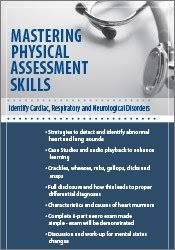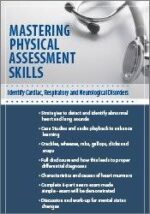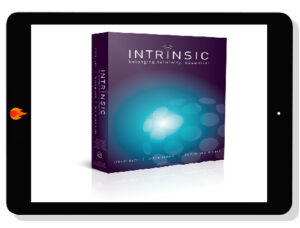Available for Pre-Order. This product will be available within a few days.
Diane S Wrigley – Mastering Physical Assessment Skills
Description:
Strategies to detect and identify abnormal heart and lung sounds
Case Studies and audio playback to enhance learning
Crackles, wheezes, rubs, gallops, clicks and snaps
Full discussion and how this leads to proper differential diagnoses
Characteristics and causes of heart murmurs
Complete 6-part neuro exam made simple – exam will be demonstrated
Discussion and work-up for mental status changes
Attend this seminar and learn to identify the different variants in the cardiac, respiratory and neurological assessments. National speaker and expert, Diane Wrigley, BS, PA-C, has developed a CD that accurately plays both abnormal and normal heart and lung sounds. Diane will teach you the origin and significance of these sounds utilizing the auditory portion of the CD. Differential diagnoses are considered and a systematic six-part neurological assessment is reviewed and demonstrated for you.
Case studies will be presented for discussion to help reinforce the physical assessment skills and listening techniques. Diane will also illustrate the proper methods to document your assessments and findings. You will feel confident leaving this seminar with information you can utilize for your future patient assessments.
Past attendees applaud Diane Wrigley and this seminar:
“The incorporation of real-life heart and lung sounds make this presentation come alive.”
“I would love to attend another seminar by this presenter! I liked the clinical assessment situations and the step by step helpful hints provided!”
Would you like to receive Diane S Wrigley – Mastering Physical Assessment Skills ?
OUTLINE
Respiratory Exam
Abnormal Lung Sounds
Pneumonia
Atelectasis
URI
Bronchial Breathing
Bronchophony
Egophony
Whispered Petroliloquy
Death Rattle
Absent Breath Sounds
Pneumothorax
Hemothorax
Crackles
Rhonchi
Stridor
Wheezes
Asthma
COPD
Emphysema
Pleural Friction Rub
Strategies for Detection
Chronic Bronchitis
Pneumonia
Emphysema
Acute Asthma
Croup
NEUROLOGICAL EXAM
Mental Status
Mnemonic to Cover All Bases
Stroke
Overdose
Infection
Toxic states
Mental illness
Cranial Nerves
Techniques to Cover I-XII Quickly and Completely
Motor
Evaluate Strength and Symmetry
Sensory
Quick Field/Bedside Assessment
Coordination
Simple Test to Assess
Reflexes
Systematic Approach/Technique
Head Injury Evaluation
Glasgow Coma Scale
Abnormalities of Consciousness
Clinical Clues
Delirium
Stupor
Coma
Altered Mental Status
Confusion Assessment Method (CAM)
CARDIAC EXAM
Auscultation Sites, Sequencing and Skills
S2 split
S3
S4
Gallop
Opening Snap
Mitral and Tricuspid Valves
Clicks
Mitral Valve Prolapse
Systolic Ejection Sounds
Hyperdynamic State
Murmurs
Intensity (Grade I – VI)
Location
Radiation
Pitch
Quality
Timing
Pattern or Configuration
Functional vs. Pathologic Murmur
Strategies for Detection of Abnormal Cardiac Sounds
Innocent Systolic Ejection Murmur
Mitral Valve Prolapse
Aortic Stenosis
Systolic Regurgitation
Mitral Regurgitation
Tricuspid Regurgitation
Diastolic Murmurs
Aortic Regurgitation
Aortic Stenosis
Mitral Stenosis
Patient Ductus Arteriosis
Prosthetic Heart Sounds
Pericardial Rubs
Mediastinal Crunch
OBJECTIVES
Identify where and why vesicular, bronchovesicular and bronchial sounds can be normal or abnormal and the significance of the abnormalities.
Interpret pathophysiology and differential diagnoses for crackles, wheezes, rhonchi and rubs.
Discuss management of obstructive vs. restrictive lung disease.
Explain and demonstrate a thorough 6-part neurological exam and document findings.
List primary causes of mental status changes and identify which patients are at risk for delirium and how to respond.
Distinguish whether abnormal S1 and S2 heart sounds are pathological or benign.
Define whether systolic and diastolic murmurs are benign or indicate cardiac disease.








